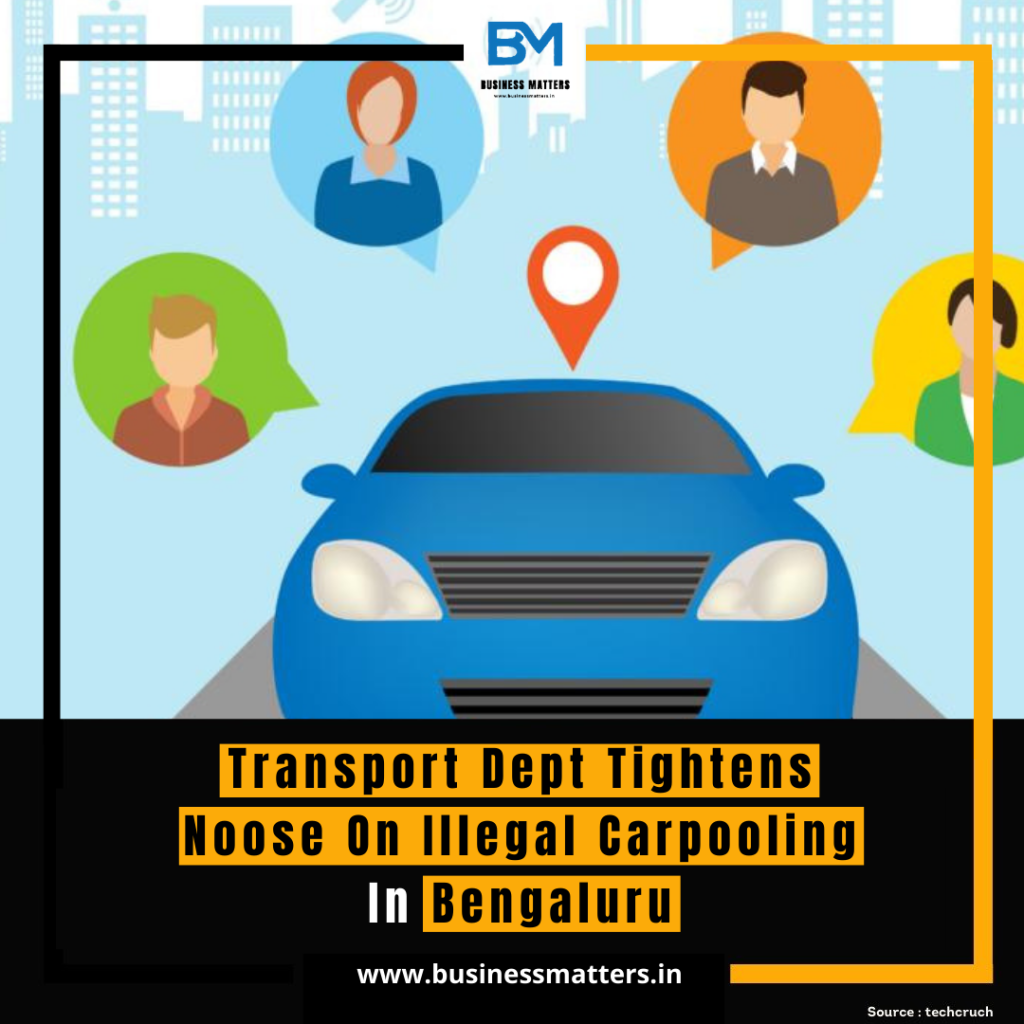
In a bid to regulate and streamline the transportation landscape in Bengaluru, the Karnataka Transport Department has recently intensified its efforts to curb illegal carpooling services in the city. This move comes as a response to growing concerns over the unregulated nature of carpooling and its impact on traditional taxi and rideshare services.
Carpooling has gained immense popularity in Bengaluru, a city notorious for its traffic congestion and pollution problems. Commuters have increasingly turned to carpooling platforms as a cost-effective and convenient means of transportation. However, this growth has been accompanied by a surge in illegal carpooling services, which often operate outside the boundaries of existing regulations.
One of the major issues associated with illegal carpooling is the lack of safety standards and oversight. Unlike licensed taxi and rideshare services, these unregulated carpooling platforms do not adhere to the same rigorous safety and background check requirements. This poses a significant risk to passengers who may unknowingly ride with drivers who have not undergone proper screening.
To address these concerns and ensure the safety of commuters, the Karnataka Transport Department has taken several measures to tighten the noose on illegal carpooling. One of the key initiatives involves stricter enforcement of existing regulations, particularly with regard to commercial vehicle permits and licensing.
Under current regulations, any vehicle used for commercial purposes in Bengaluru must obtain the appropriate permits and licenses. This includes vehicles used for ridesharing or carpooling services. However, many carpooling platforms and drivers have been operating without these permits, effectively flouting the law.
To combat this issue, the Transport Department has stepped up its inspections and crackdown on vehicles operating without the necessary permits. Offenders caught without the required permits now face hefty fines, and their vehicles may be impounded. This is intended to serve as a deterrent and ensure that all carpooling services operate within the bounds of the law.
Additionally, the Transport Department has been collaborating with law enforcement agencies to identify and penalize illegal carpooling operators. This includes sharing information with the police about unlicensed drivers and vehicles operating on popular carpooling platforms. This collaborative approach aims to target both drivers and the platforms that facilitate illegal carpooling.
Another significant step taken by the Transport Department is the introduction of a dedicated helpline for reporting illegal carpooling activities. This helpline allows concerned citizens to easily report instances of unlicensed carpooling and provide information that can aid in enforcement efforts. By involving the community in the fight against illegal carpooling, the department hopes to enhance its ability to identify and penalize offenders.
While these measures are aimed at curbing illegal carpooling, the Transport Department is also aware of the need to strike a balance between regulation and innovation. Recognizing the benefits of carpooling in reducing traffic congestion and environmental impact, the department is exploring ways to encourage legal and safe carpooling services in the city.
One such initiative involves streamlining the process for obtaining commercial permits for carpooling vehicles. The department is working to simplify and expedite the permit application process, making it easier for drivers to comply with the regulations. This approach aims to remove some of the barriers that have led to the proliferation of illegal carpooling services.
In conclusion, the Karnataka Transport Department’s efforts to tighten the noose on illegal carpooling in Bengaluru reflect its commitment to ensuring the safety and regulation of transportation services in the city. While these measures may pose challenges for some carpooling operators, they ultimately aim to create a safer and more transparent environment for commuters. By cracking down on illegal carpooling and promoting legal alternatives, the department hopes to strike a balance that benefits both passengers and the transportation ecosystem as a whole.

